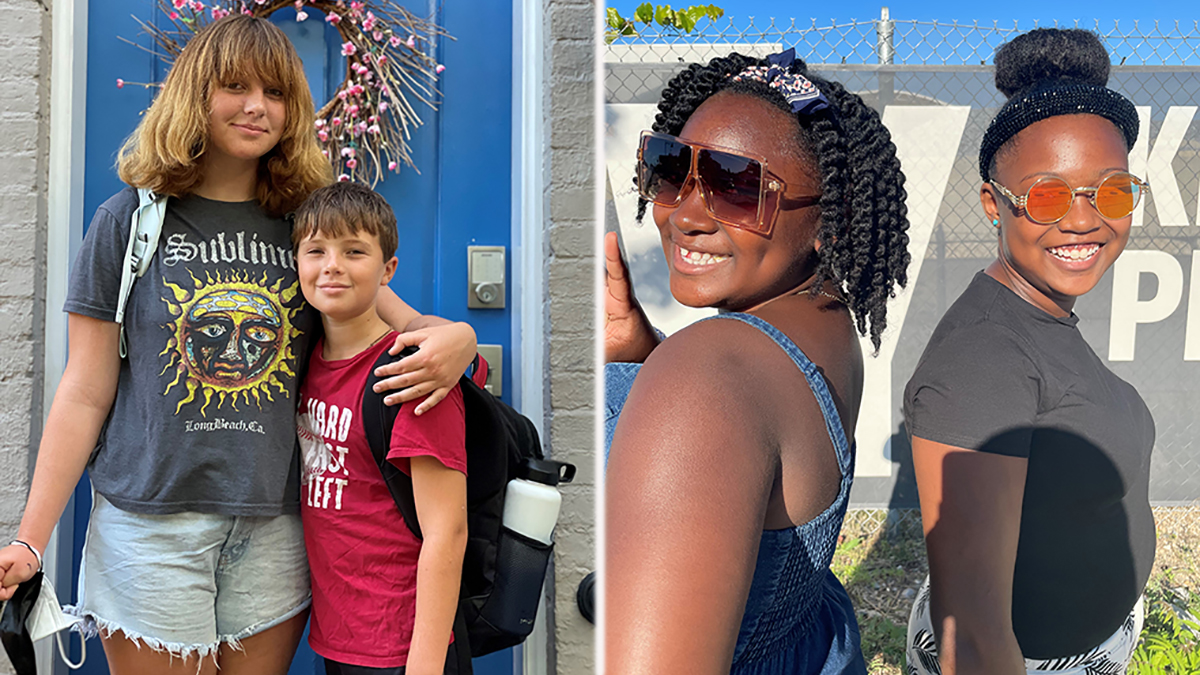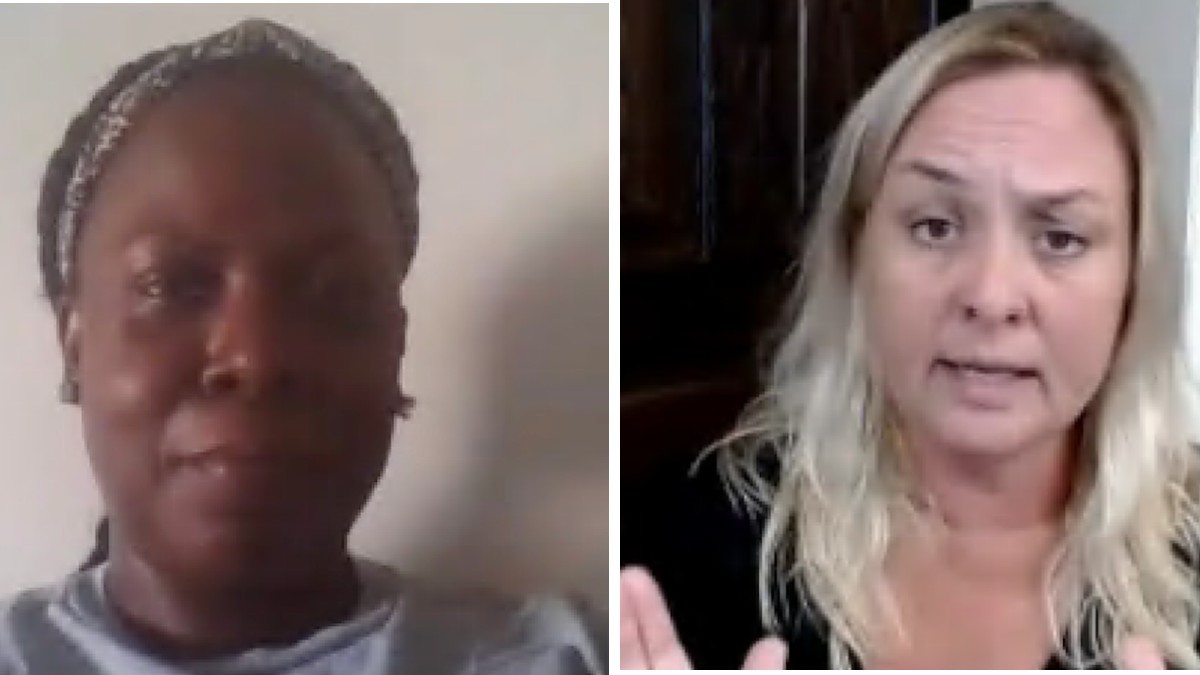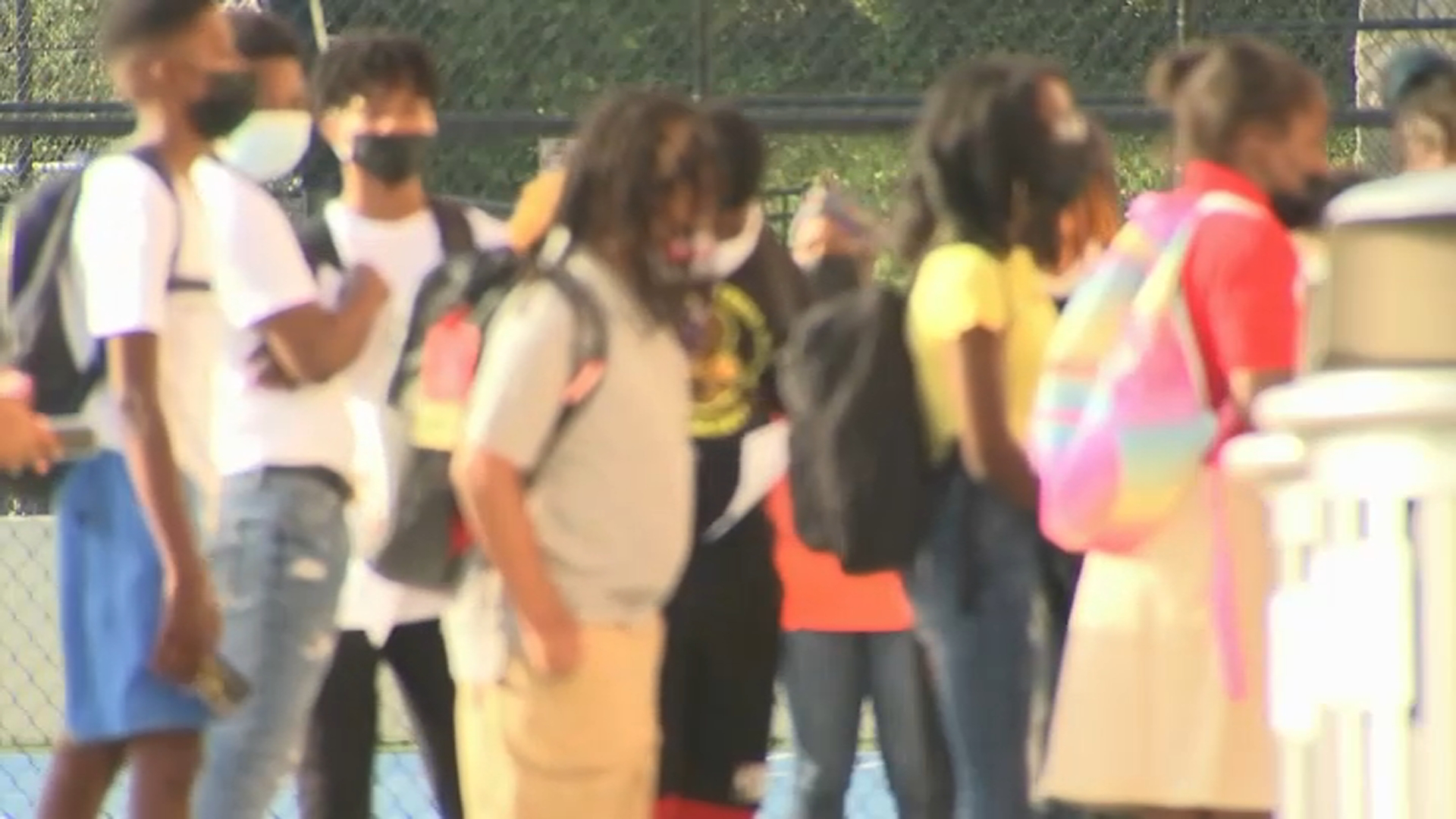Some parents of D.C. students tell the News4 I-Team the school district has taken steps to report them to the DC Child and Family Services Agency for “educational neglect” after they opted to keep their kids home from school without approval.
In the cases described to the I-Team, parents said their children were not eligible for D.C.'s virtual school option, which is only available to children with certain medical conditions — and does not extend to children with immuno-compromised family members.
D.C. Public Schools has warned parents the public health emergency did not alter a District law requiring them to report students between the ages of 5 and 13 who incur 10 or more unexcused absences in a school year to CFSA. That policy is intended to protect kids and limit truancy.
We're making it easier for you to find stories that matter with our new newsletter — The 4Front. Sign up here and get news that is important for you to your inbox.
But Kavitha Kasargod-Staub is among the parents who say more flexibility is needed as the nation grapples with another alarming coronavirus wave. The mother of two, who is also an educator, said she intended to send her kids to school in-person this year, but reconsidered after watching the region’s COVID-19 case numbers climb in recent weeks.
"Basically they're asking you to choose between learning and instruction and the health of your child,” she said. “It's an impossible decision, right? It is horrible that you would have to do that.”
She’s already received calls from her children's school and a CFSA social worker after deciding to keep her kids at home. She said she is now contemplating whether to formally homeschool them.
Her children, who are in second and fifth grade, are too young to be vaccinated. She said she’s worried about in-person school policies allowing kids to eat lunch together indoors with no masks, for instance, or to return to school after quarantining without being tested.
"You do everything that you can do as a parent to keep your child safe," said Kasargod-Staub, who said she served as PTA president for her kids’ school last year. "Then to be told that because you are doing that, you are harming your child, that's what the District thinks you're doing? I mean, it's hard to find words."
Alex Simbana is worried she'll soon be formally contacted by CFSA, as well. Like Kasargod-Staub, she hoped to send her 9-year-old daughter back to the classroom but changed her mind as the Delta variant took hold.
“I would never, ever want to place my children in a situation and roll the dice with their health,” Simbana said. “I don't want them to have lasting effects as I've had to deal with them.”
For Simbana, it’s more than a theoretical risk. After giving birth to twins, she was hospitalized last year with a serious COVID-19 infection that has left her with lingering health problems.
She said her daughter does not qualify for virtual learning and said she wanted to go back to class only after she is vaccinated. Until then, she doesn't want to put her mom and toddler sisters -- who are also too young to be vaccinated -- at risk.
"With the support of her teachers and her school, she's still doing school every single day. She is logging in, she is doing her workbooks, she's on track with her classmates," Simbana said. "The only difference is that she is not in the school building."
In addition to some parents keeping kids at home over health concerns, other parents told the I-Team some vaccinated students have incurred unexcused absences for quarantining without being directed to do so by the school or a doctor. That includes instances when a sibling or other family member has tested positive.
DCPS told the I-Team it is following CDC guidelines for quarantining and testing. But Simbana said that guidance should be used as a floor — and not a ceiling — for setting policies.
Simbana said she does not want to formally withdraw her daughter, out of fear she'll lose her lottery slot at the school she loves. But after receiving a letter last week from DCPS warning her child is “in danger of being withdrawn” and that continued absences could lead to a referral to CFSA, she’s rethinking her options.
"We will likely bend and send her back by that Oct. 1st deadline," Simbana said, then growing emotional. "If something were to happen to my child… it will be a decision I regret every single day. And it will be a decision and a consequence that I will lay entirely on the people who forced her back into that building.”
Simbana noted the threat to refer to CFSA can be especially intimidating to immigrant families facing their own delicate health and medical decisions, especially those with precarious immigration statuses.
She and Kasargod-Staub are among parents now calling for a virtual schooling option for all families; more stringent testing and quarantine protocols; outdoor meal-times and better ventilation and filtration systems, among other measures. They said they hope to testify about these issues in front of the D.C. Council this week.
DCPS has not yet provided an official response to the I-Team’s questions, but its policy states CFSA’s involvement “should be considered a last resort and is only appropriate when a parent’s actions or inactions directly impact their child’s attendance.
According to the policy, schools should first try to contact parents of children with unexcused absences in a variety of ways to gauge whether, for instance, a child has been enrolled elsewhere.
What’s more, the policy states that while schools are legally required to refer cases after 10 or more unexcused absences, the “absences alone do not necessarily constitute educational neglect” and “CFSA will determine whether or not there is alleged educational neglect requiring a child welfare agency response.”
Through a spokesman, D.C. Councilman Charles Allen said it's wrong to penalize families who are trying to protect their children, and that it wastes the agency's resources in pursuing actual cases of neglect or abuse.
Allen said if DCPS doesn't make changes to its absence and truancy policies by the next legislative meeting on Oct. 5, he'll introduce a bill to try to amend it.
The I-Team reached out to several other school districts across Maryland and Northern Virginia. So far, no other districts have said they're reporting families to child protection agencies for unexcused absences at this time.
A spokesman for Montgomery County Public Schools, for instance, said MCPS is “not using traditional truancy interventions at this time” or “imposing any sanctions for parents who fail to send their children to school.”
Christopher Cram said the district is conducting outreach to understand the parents’ concerns and discuss whether homeschooling is a better option, while “trying to gently explain that simply keeping their children home is not a viable or sustainable option.”
About 3,000 kids have enrolled in MCPS’s virtual academy, with about 750 on a waiting list. Cram said the district hopes to admit additional students as more teachers are hired.




